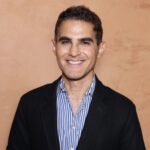Every facial plastic surgery patient wants to know what he or she should and should not do to promote a smooth recovery. Dr. Ali Ghafouri and our team will provide you with post-operative instructions tailored to your individual case. But the same general do’s and don’ts apply, regardless of the chosen procedure.
What to Do
Do eat a nutritious, balanced diet. Limit your consumption of salty foods — which can exacerbate swelling — and eat plenty of fresh fruits and vegetables, whole grains and sources of lean protein. You may find that soft foods, like mashed potatoes, scrambled eggs and yogurt, are easier to chew right after surgery. Make sure you eat plenty of fiber or buy a bottle of stool softeners, as some patients experience constipation after surgery from the anesthesia. Stay hydrated by drinking plenty of water.
Do prepare your home ahead of time by picking up things you may need during recovery. This includes prescription medications, ice packs and healthy meals and snacks. Set up your recovery space with cozy blankets and pillows, and have several days’ worth of clean, comfortable, loose clothing on hand. Try to have tops that button or zip in front instead of those that slip over your head; it’s best to avoid anything that could accidentally disturb your incisions.
Do get plenty of sleep and restful relaxation during your recovery. Your body needs time to recuperate from surgery. When you’re not sleeping or resting, have plenty of low-key entertainment options easily accessible (e.g., a book you’ve been meaning to read, a new podcast series downloaded to your smartphone or your Netflix queued up).
Do follow the incision care instructions provided by Dr. Ghafouri and our team. Generally, try to keep your incisions dry and clean, and apply all prescribed ointments as directed. Generally, you can wash the incision with soap and water two day after the surgery.
Do take short walks as soon as you feel ready. Walking promotes good circulation after surgery. Be careful not to overexert yourself, though. Walking around your house or up and down your block is sufficient during your initial recovery.
Do make arrangements to take adequate time off from work. Most patients are ready to go back to the office after one or two weeks. Others — particularly those who work physically demanding jobs — need additional time off to recover.
Do attend your follow-up appointments with Dr. Ghafouri. He will remove any sutures/drains, closely monitor your healing progress and answer questions about recovery. Dr. Ghafouri can also advise when it is safe to go back to work, socializing and exercising. You are welcome to bring a list of questions or concerns to your appointments, and we encourage you to jot down notes to remember in-between visits.
What Not to Do
Don’t smoke or consume large amounts of alcohol. Tobacco and alcohol are detrimental to the recovery process. Smoking in particular can damage the healing tissues and increase the chances of poor wound recovery and bad scarring.
Don’t forget to arrange for a companion to drive you to and from surgery and help you for at least the first 24 hours after surgery. Having someone to assist you with preparing meals, pet care and other household responsibilities will bring you peace of mind during recovery.
Don’t sleep flat on your back or on your sides. (Sleeping on your back can cause excessive swelling, and sleeping on your sides can irritate your healing incisions.) You may choose to prop yourself up on a few pillows, or sleep in a recliner if that feels more comfortable. Wedge pillows are very popular among patients healing from surgery.
Don’t expose the surgical area to the sunlight. When going outdoors, protect your incisions from sun exposure by wearing sunscreen, sunglasses and a wide-brimmed hat. (Continuing to practice smart sun protection habits after recovery will prolong the life of your results!)
Don’t engage in any activities that involve heavy lifting, bending, bouncing up and down or straining. Elevating your heart rate and overexerting your body before it has adequately healed can increase the risk of post-operative bruising, swelling and other complications.
Don’t be discouraged by bruising and swelling. Don’t be alarmed if the incisions or treated areas feel numb or tender to the touch. These are normal aftereffects that with the proper care and attention should subside over time. (Extreme pain, swelling that does not resolve and incisions that produce discharge or are hot to the touch should be promptly reported to Dr. Ghafouri.) As the aftereffects subside, normal sensation should return and your results will become more apparent. Try to be patient when anticipating your final results; it can take several months for your results to fully reveal themselves.
Contact Us Today
If you have further questions about facial plastic surgery recovery do’s and don’ts, or wish to clarify part of your post-operative instructions, Dr. Ghafouri and our team are here for you. Contact us or give us a call at (480) 905-1010 today.
Dr. Ghafouri, MD, FACS, is a distinguished ophthalmic plastic and facial cosmetic surgeon based in Scottsdale and Phoenix, Arizona, with extensive experience in eyelid, eye orbit, tear drainage, and skin cancer surgeries. He specializes in minimally invasive aesthetic procedures such as cosmetic eyelid lifts, endoscopic forehead lifts, mid-facelifts, laser facial rejuvenation, Botox, and dermal fillers. Board-certified by the American Board of Ophthalmology and a fellow of several prestigious medical societies, he has performed over 18,000 major reconstructive and aesthetic surgeries. Dr. Ghafouri and his team at Arizona Oculoplastic Specialists are dedicated to delivering exceptional patient care with compassion and excellence.
9431 E. IRONWOOD SQUARE DR., SCOTTSDALE, AZ 85258
Dr. Ghafouri offers virtual consultations for out-of-town patients. We see patients from all across the country who trust Dr. Ghafouri’s unique skills and expertise for their facial or eyelid surgeries. If you choose to travel to Arizona for your surgery, we can also recommend hotels and other resources to make your stay comfortable.
To schedule a virtual consultation with Dr. Ghafouri Click here.
Contact Us
What procedure are you interested in?
What procedure are you interested in?




